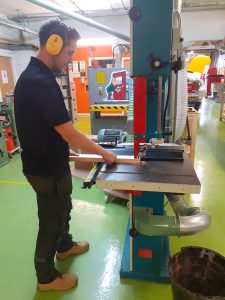 The NAS has a proud history of promoting Apprenticeships within our industry. Here are some inspirational stories from our Members:
The NAS has a proud history of promoting Apprenticeships within our industry. Here are some inspirational stories from our Members:
- From Apprentice to Director and NAS President by the age of 37, Marc Allen c/o NAS Member Tekne
- From Apprenticeship to Contract Management – c/o NAS Member A.Edmonds & Co.
- Apprenticeships during the Covid-19 Pandemic – c/o NAS Member EE Smith Contracts
Find out more about the Government Apprenticeship Levy.
Download and read the recent CCATF Apprenticeship Vision 2021-22.
An apprenticeship is:
- A job with training.
- Open to anyone who is 16 and over.
- An opportunity which has no upper age limit.
- Working alongside experienced staff and gaining job-specific qualifications.
- Your employer will give you tasks to perform, and the training provider will give you the theoretical skills to perform those tasks.
Apprenticeships mean:
- You are employed and will earn while you learn, so you can gain an industry specific qualification without needing a student loan.
- You are employed full-time (usually between 30-40 hours per week), which includes the time spent with your training provider.
There are different levels of apprenticeships, this means you can choose to enter at a level that is best for you. To progress in your career, you can choose to move onto the next level of an apprenticeship:
- Intermediate level 2 – the equivalent of 5 GCSE passes at grade 9-4 (A*-C) – takes approx. 2 years
- Advanced level 3 – the equivalent of 2 A-level passes, Level 3 Diploma or International Baccalaureate
- Higher levels 4, 5, 6 and 7 – the equivalent of a Foundation Degree and above
- Degree level 6 and 7 – the equivalent of a Bachelor’s or Master’s degree
Each apprenticeship will have different entry requirements depending on your chosen role and level.
What can I expect to earn as an apprentice?
Wages for apprentices are set by the government and vary by age. Rates change every April. Find more details here.
I’d like to know a bit more about the industry roles that are out there, where do I go?
The NAS recommends Approved Training Provider Didac
Didac can assist with:
Level 2:
- Wood Machinist
- CNC Specialist
- Fitted Furniture Installer
- Customer Service Practitioner
- Supply Chain Warehouse Operative
- Wood Products Manufacturing Operative
Level 3:
- Advanced CNC Technician
- Customer Service Specialist
- Business Administrator
Find an Apprenticeship
Apprenticeship Guide For England
SICCS skill cards for Apprentices are free for NAS Members and heavily discounted to non-members. Read more.
Click here for types of CSCS Cards
Further help and assistance
Click here for types of SICCS Cards
For further help and assistance
CITB provides dedicated website with all information related to obtaining funding for the new apprentices. Find out more.
You can also download the interactive PDF that explains various funding options.


